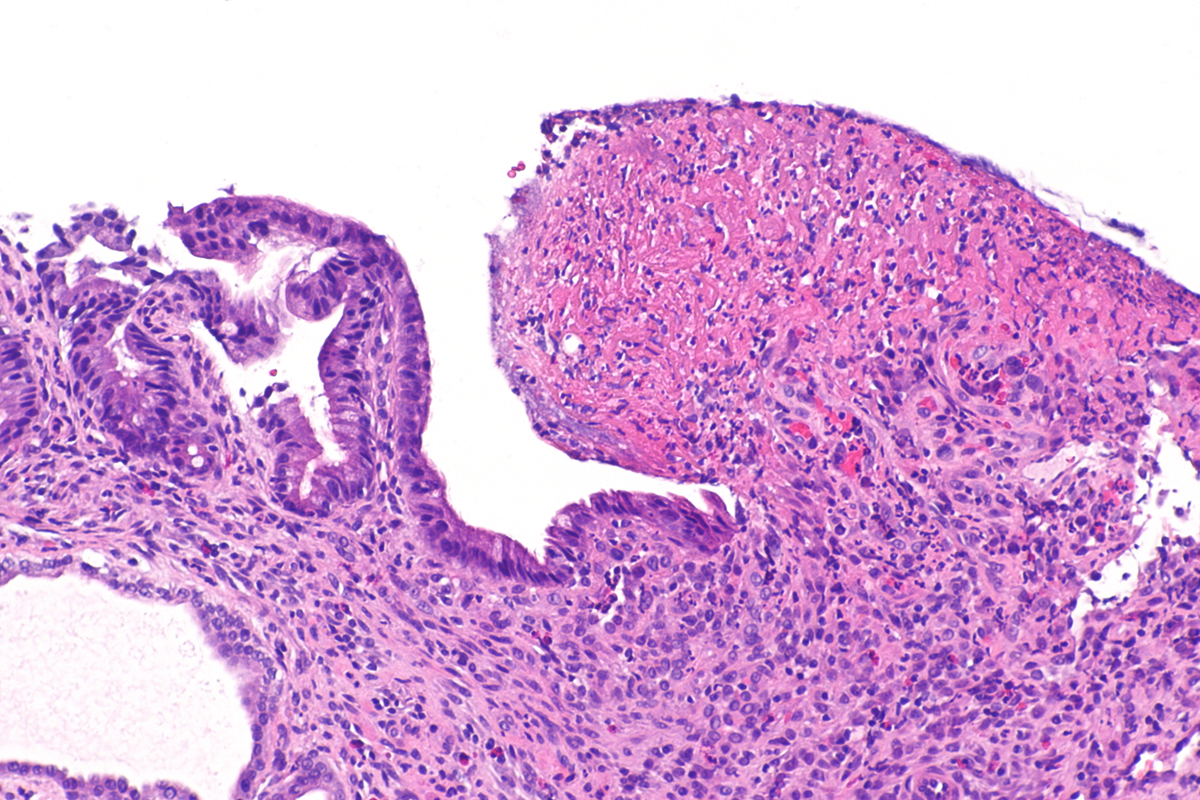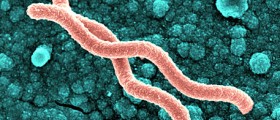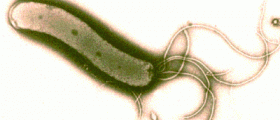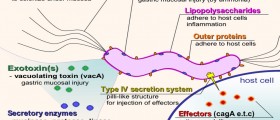
Stomach Ulcer Overview
A stomach ulcer, also known as gastric ulcer, is a type of sore that develops in the lining of the stomach. Stomach ulcer is a very common condition and it is estimated that it affects 10% of people worldwide.
Peptic ulcer is a term collectively used to describe the ulcers of the esophagus, the stomach and the duodenum (the first part of the small intestine). Ulcers occurring in the esophagus are known as esophageal ulcers, ulcers of the duodenum are called duodenal ulcers while those of the stomach are known as stomach or gastric ulcers. Duodenal ulcers are the most common whilst esophageal ulcers are the rarest type of peptic ulcer.
Causes of Stomach UlcerA stomach ulcer occurs when the mucus lining of the stomach gets damaged by hydrochloric acid present in the stomach. Stomach ulcers may develop due to several causes. The leading cause of stomach ulcers is infection with the bacterium Helicobacter pylori. This infection can be transmitted by sharing food, water or utensils.
Chronic use of certain medications is also a common cause of stomach ulcer formation. This mainly refers to anti-inflammatory medications such as Aspirin and ibuprofen.
Cigarette smoking, heavy alcohol drinking, stress, excess secretion of hydrochloric acid, genetic predisposition and Crohn’s disease are other possible causes of stomach ulcers.
Signs and Symptoms of Stomach Ulcer
The symptoms of stomach ulcer may differ from person to person depending on the underlying cause, location of the ulcer and other factors. However, the major symptom of stomach ulcer is abdominal pain that is commonly experienced as burning and sharp. The pain may last from several minutes to a few hours. It frequently occurs at night and may wake a person up from sleep.
The pain caused by stomach ulcer usually appears after a meal whereas duodenal ulcer causes pain when the stomach is empty. The pain may be experienced anywhere from the navel to the breastbone and may radiate from the stomach to the back. Often, pain caused by stomach ulcer may disappear for a few days or weeks and than return.
Apart from the pain, a stomach ulcer may also cause abdominal bloating, nausea, vomiting, loss of appetite, weight loss, belching, blood in the stool and dizziness. A life-threatening complication of stomach ulcer may sometimes develop when the ulcer perforates the stomach wall. A perforated ulcer causes sudden severe abdominal pain due to leaking of food and stomach acid into the abdominal cavity.
Treatment for Stomach Ulcer
Stomach ulcers can be treated with acid suppressing medications or antacids. They are used to reduce the acid content in the gastric juices to help the ulcer to heal. Most common medications used for this purpose are H2-receptor antagonists and proton pump inhibitors. If the condition is caused by infection with Helycobacter pylori, antibiotics are used to clear the bacterium. Finally, surgery is used in case complications of stomach ulcer develop such as bleeding or perforation.

















Your thoughts on this
Loading...